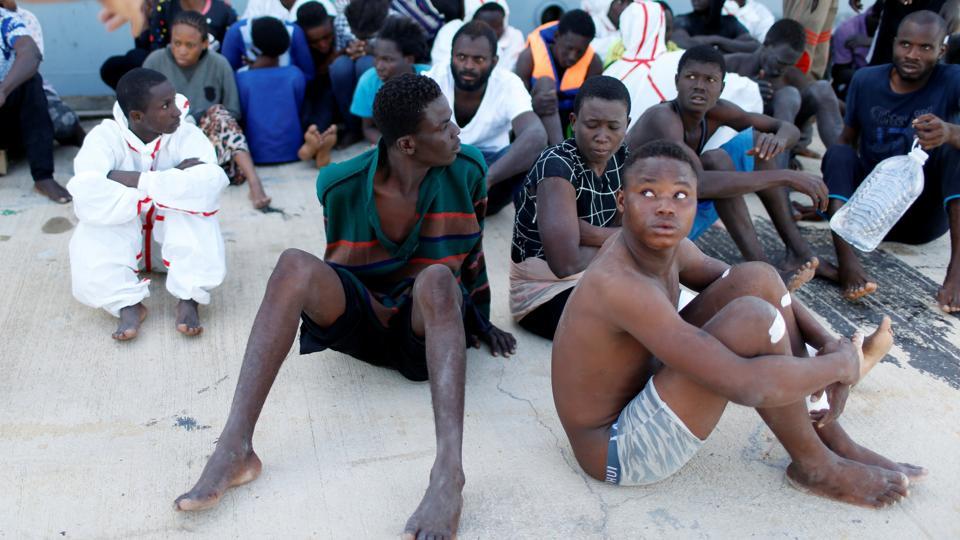
“Eight hundred,” says the auctioneer. “900 … 1,000 … 1,100 …” Sold. For 1,200 Libyan dinars — the equivalent of $800.
Not a used car, a piece of land, or an item of furniture. Not “merchandise” at all, but two human beings.
Carrying concealed cameras into a property outside the capital of Tripoli last month, we witness a dozen people go “under the hammer” in the space of six or seven minutes.
Buyers raise their hands as the price rises, “500, 550, 600, 650 …” Within minutes it is all over and the men, utterly resigned to their fate, are being handed over to their new “masters.”
After the auction, we met two of the men who had been sold. They were so traumatized by what they’d been through that they could not speak, and so scared that they were suspicious of everyone they met.
Libya is awash with tears for the tens of thousands of migrants from across Africa and beyond who have traveled there in search of a better life.
This time-honored practice began last century when workers from the Middle East and Africa flocked to Libya for jobs in its booming petro-economy — a pattern that continues even now, despite Libya’s dismal security climate.
That practice has become conflated with the global trend of migrants from poor lands seeking jobs in developed countries — especially Europe, a continent that will require millions of new health care workers to serve its increasingly elderly populations.
If the migrants searching for a new life in Europe don’t perish at sea, they are at risk of being sold as slaves in Libya.
Crackdown on smugglers
Each year, tens of thousands of people pour across Libya’s borders. They’re refugees fleeing conflict or economic migrants in search of better opportunities in Europe.
Most have sold everything they own to finance the journey through Libya to the coast and the gateway to the Mediterranean.
But a recent clampdown by the Libyan coastguard means fewer boats are making it out to sea, leaving the smugglers with a backlog of would-be passengers on their hands.
So the smugglers become masters, the migrants and refugees become slaves.
first Lieutenant Naser Hazam of the government’s Anti-Illegal Immigration Agency in Tripoli told CNN that although he had not witnessed a slave auction, he acknowledged that organized gangs are operating smuggling rings in the country.
“They fill a boat with 100 people, those people may or may not make it,” Hazam says. “(The smuggler) does not care as long as he gets the money, and the migrant may get to Europe or die at sea.”
“The situation is dire,” Mohammed Abdiker, the director of operation and emergencies for the International Organization for Migration, said in a statement after returning from Tripoli in April. “Some reports are truly horrifying and the latest reports of ‘slave markets’ for migrants can be added to a long list of outrages.”
The auctions take place in a seemingly normal town in Libya filled with people leading regular lives. Children play in the street; people go to work, talk to friends and cook dinners for their families.
But inside the slave auctions, it’s like we’ve stepped back in time. The only thing missing is the shackles around the migrants’ wrists and ankles.


Post Your Comments